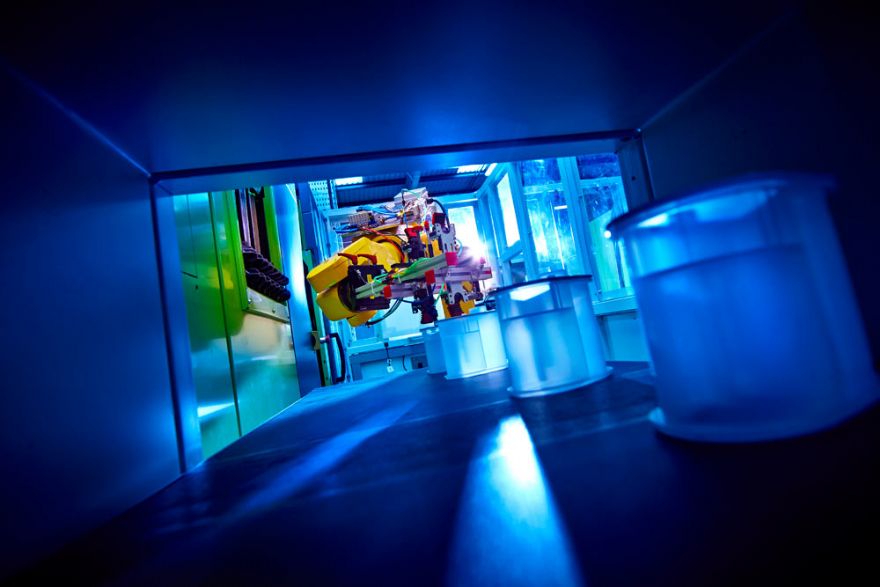
While it is widely accepted that automation has an important role to play in optimising efficiency and productivity, some UK manufacturers seem reluctant to take advantage of the latest innovations in industrial robotics, believing that adopting this technology can lead to job losses.
However, North Yorkshire-based Advanced Plastics — a supplier to a number of OEM and Tier One companies in the HVAC and automotive sectors — is proving that the opposite is true: staffing levels have increased by 83% in five years and growth on-going thanks to continued investment in both automation — including industrial robots — and developing staff skills.
Now employing more than 200 people, Advanced Plastics (
www.advanced-plastics.co.uk) manufactures products that range from gas boiler front panels to automotive interior, exterior and air filtration components. To accommodate further growth, the company is now looking to expand its manufacturing capacity with a new warehouse facility that will free up an additional 40% of production space.
Edwin Darling, Advanced Plastics’ process manager, said: “While our moulding machines produce the parts, we now use robots to tend the machines, as they ensure consistent cycle times and dependable OEE — overall equipment effectiveness.
All of our injection moulding machines have a robot — situated inside a cell performing a variety of operations — and many of the robots have vision systems to provide 100% automated verification.”

Coventry-based Fanuc (
www.fanuc.eu/uk/en) has provided 82% of the robots used by Advanced Plastics. Due to the variety of orders that the company receives, it has used a number of different systems from Fanuc, including the M-10iA, M-20iC, M-6iB and R-2000 series robots, as well as Roboshot injection moulding machines.
One of the benefits of the R-2000 robots is their ability to work with pre-existing automation equipment. At Advanced Plastics, two R-2000 robots deliver parts from a moulding machine to another piece of equipment that helps to place foam gaskets around plastic components, such as boiler covers.
The company now moulds more than 1,000 products, each with its own robot programme, and one member of staff can safely operate up to six moulding machines at any one time.
Staff trainingMr Darling says one of the benefits of using Fanuc technology is the training that the company provides — both at its base in Coventry and also on site. Furthermore, four of the Advanced Plastics team have been trained to service and maintain the robots, ensuring that the company has the necessary capabilities to be self-sufficient.
Mr Darling added: “We have found that Fanuc offers the most user-friendly robots we have ever used; and being able to go to its headquarters for comprehensive training ensures that we are well-placed to manage our operations.
The speed at which we are able to complete orders means that we can continue to grow and invest in further technology.”
By working with Fanuc, Advanced Plastics has significantly increased its capacity by moving from three-axis robots to six-axis M-10iA robots. Processes that were complicated and difficult to undertake manually are now automated, including picking up inserts and putting them into the moulds, some of which can reach temperatures between 80 and 90°C —making them unsafe to work with manually.

Robots also undertake operations such as trimming tab gates from cavities once the plastic has been injected. The adoption of M-10iA robots has also seen Advanced Plastics double its payload (compared with its previous system) — from 6kg to 12kg.
This compact robot has also helped Advanced Plastics to improve its cycle times and achieve significant time savings over the course of a year. Mr Darling said: “The Fanuc machines are fast; and because they offer a constant cycle time, they can provide time savings of 2sec or more each production cycle.
“While this does not sound like a lot, it means that we can save around four to five weeks of processing time a year. Given the increase in orders that we have received, this time saving helps us to keep growing as a business.”
As Fanuc’s robots come in various sizes, Advanced Plastics can mould a vast range of different products (of varying technical difficulty). The company currently uses robots with payloads that range from 6kg to 165kg, allowing it to fulfil orders for a wide variety of components at the same time.
When Advanced Plastics moved into its current facility in 2012, the company had 16 injection moulding machines; this number has been since increased to 37, more than doubling its capacity.